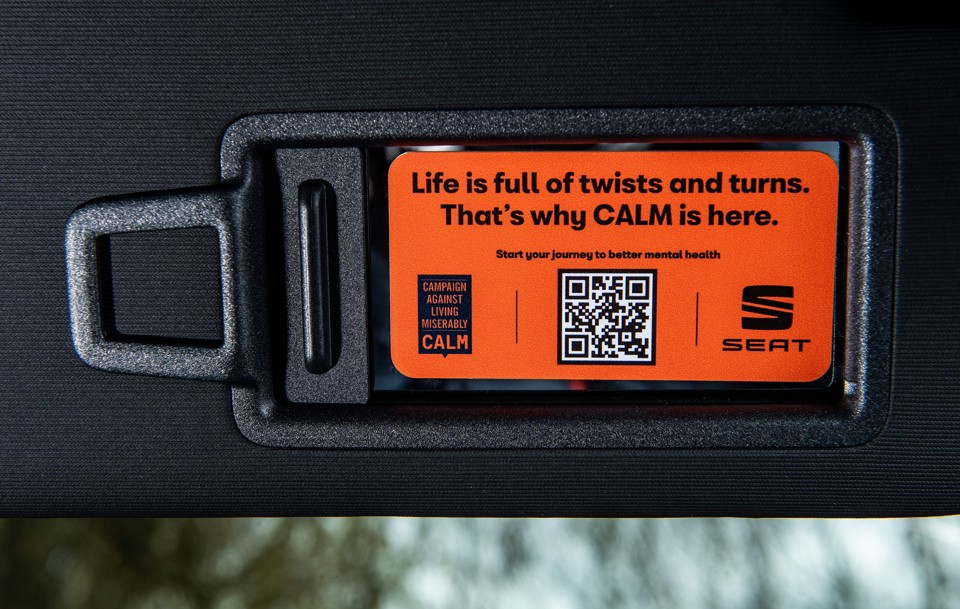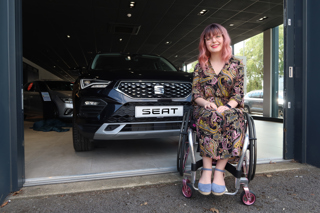Seat has partnered with suicide prevention charity Campaign Against Living Miserably (CALM) to pilot a mental health ‘SOS’ feature to its new vehicles.
A QR code in a vehicle’s vanity mirror takes users to a specially-designed page on CALM’s website, with hints and tips to preserve your mental health, and a helpline number if the user needs further support.
Seat said the QR code and message can easily be removed by the user if they would prefer.
Research commissioned by the vehicle manufacturer showed that 59% of UK adults have sought to improve their wellbeing by temporarily leaving their house, with nearly 90% of people saying they go for a drive to stay positive or to support their mental health.
Richard Harrison, Seat UK managing director, said: “With our longstanding mental health partner, CALM, we wanted to play a small part in helping people to quickly access support when they need it.
“The new ’SOS’ feature should make it that little bit easier to have someone to talk to, especially because so many people see the car as a place of refuge.
“It is definitely a case of ‘being silent isn’t being strong’, so we encourage people to speak to their friends and family or seek professional advice.”
As the UK population continues to be impacted by various COVID restrictions, a further 60% of respondents said that being able to drive their cars during the pandemic (within government guidelines) had positively impacted their mental health. More women (64%) than men (54%) have found solace in driving their cars during the pandemic.
While 90% of respondents said they have driven their car to clear their head at some point during 2020, 46% say they do so on a weekly basis.
Three quarters (76%) of younger drivers (18-24) felt their car had been a positive influence on their mental health during the pandemic, the most of any age group, while this was the case for just half of over 55s.
Drivers in London (59%) were most likely to get behind the wheel to support their mental health and stay positive on a weekly or daily basis, whereas drivers in Yorkshire and the Humber were least likely to do so (39%).
Seat hopes to make the service a permanent feature in its vehicles if the pilot is successful.
Simon Gunning, CEO at CALM, said: “From CALM’s helpline number to expert advice on how to have a conversation with someone you’re worried about, CALM and SEAT have teamed up to put people in the driving seat when it comes to helping themselves and others.”
CALM's confidential helpline and webchat is free and available all year from 5pm until midnight.
The partnership between CALM and Seat was established two years ago, with previous collaborations including the ‘Grow a Pair (of ears)’ campaign, which encouraged everyone to talk and listen to their friends to help support better mental health.





















Login to comment
Comments
No comments have been made yet.